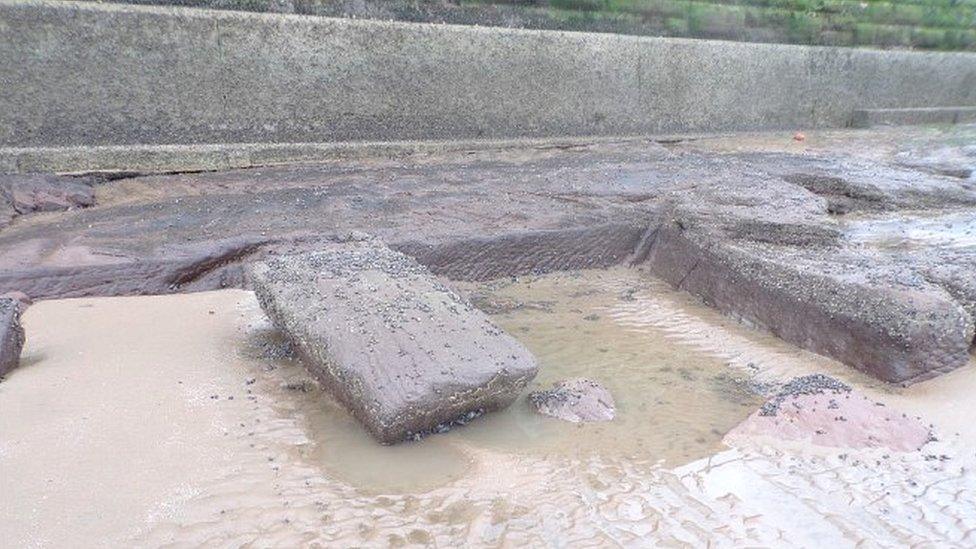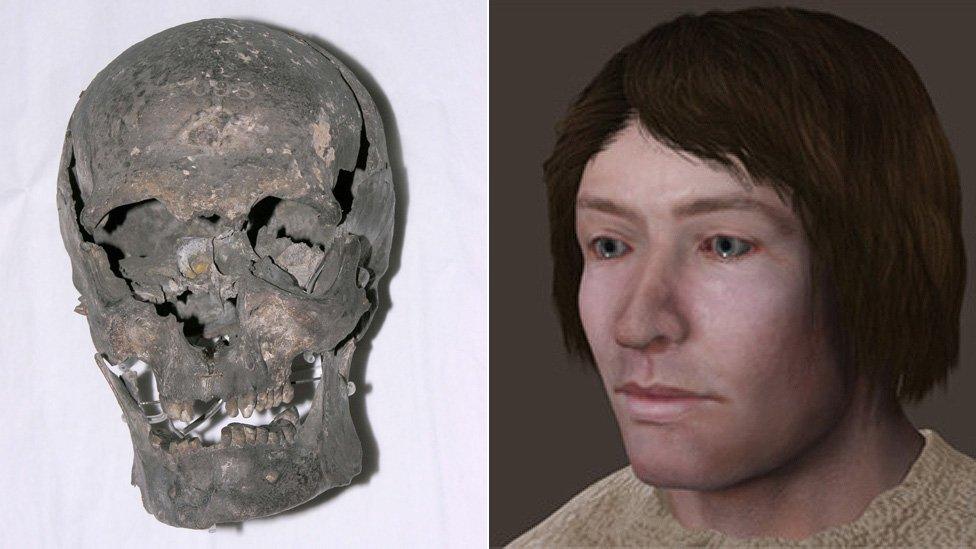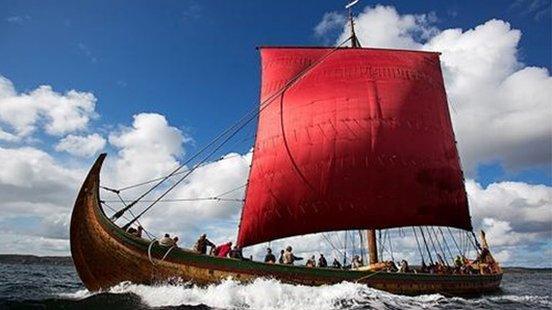Wirral archaeology dig starts at ancient ironworks
- Published

Experts believe the site was used to forge tools and weapons
Archaeologists have begun a dig at an ancient ironworks where they hope to discover whether it dates from the Roman or Viking period.
Local experts believe the Egremont site in Wirral, Merseyside was used to forge tools and weapons.
Dr Brian Atkin, from Wirral Archaeology, said they hoped to find items that "can be subjected to dating and chemical analysis".
He said they would provide information about the era when the site was set up.
"If it is found to link to the Roman era, this would add to the body of evidence supporting a Roman presence on this part of Wirral," he said.
"Or it may provide information about the Viking presence in the north of Wirral, which up to now has left few traces apart from the wealth of Norse place names."
The Romans built forts in the wider region, external, some decades after invading southern England in 43 AD.
Local archaeology digs have found evidence of roundhouses and jewellery from the Roman period in north Wirral, external.
Viking settlers
The region is also famously full of places with Scandinavian-rooted names, external, dating back to arrival of Viking settlers in 902 AD.
With locations such as West Kirby and Irby, it has one of the highest concentrations of areas suffixed with "by" - a Viking term for settlement or farmstead - in the UK.
Archaeologists hope to uncover the structure of the ancient Egremont site during low tide over the coming weekends.
They said it hosted a bloomery, where softened iron - known as bloom - was hammered into tools after being heated in a process powered by charcoal and bellows.

Why not follow BBC North West on Facebook, external, Twitter, external and Instagram, external? You can also send story ideas to northwest.newsonline@bbc.co.uk
Related topics
- Published26 March 2016

- Published18 July 2014
